In a national survey conducted by the Centers for Disease Control and Prevention and released last April, 40 percent of parents surveyed said they gave their baby solid food before they were 4 months old, with 9 percent starting as early as 4 weeks. Doctors recommend breastfeeding as the sole source of nutrition for babies for 6 months, and thus waiting until a baby is at least 6 months old to introduce solid foods.
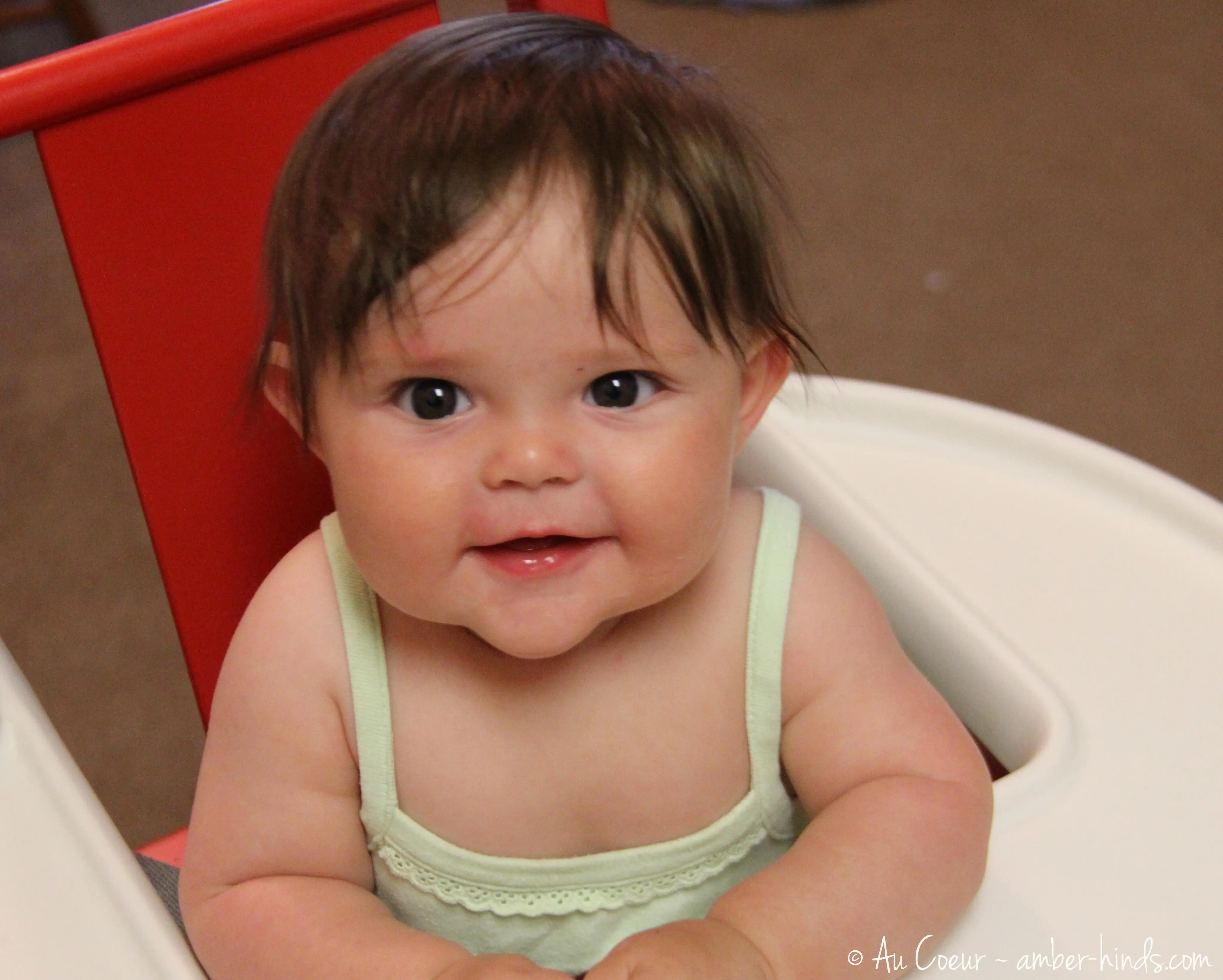
As Zara grows heavier in my arms and her chubby little cheeks continue to round out, I’ve started anticipating her first foods. As she becomes increasingly engaged with the world and interested in what I am doing, moving anything she can grasp into her mouth to chew, chew, chew with two brand new teeth that cut through her gums only yesterday, there are moments when I have absent mindedly and almost reflexively nearly found myself handing her a piece of my dinner roll before stopping to remind myself that this little girl doing just fine on milk.Clearly, the rubberband wrists, belly rolls and baby thunder thighs are proof enough of that.
When Nora was this age I was so relieved to have made it halfway to my year long breastfeeding goal, despite the working and pumping aspect of our breastfeeding experience, that I barely thought about solid food in her fifth month. Honestly, I was so in love with being her only food source that I wanted to delay solids as long as possible.
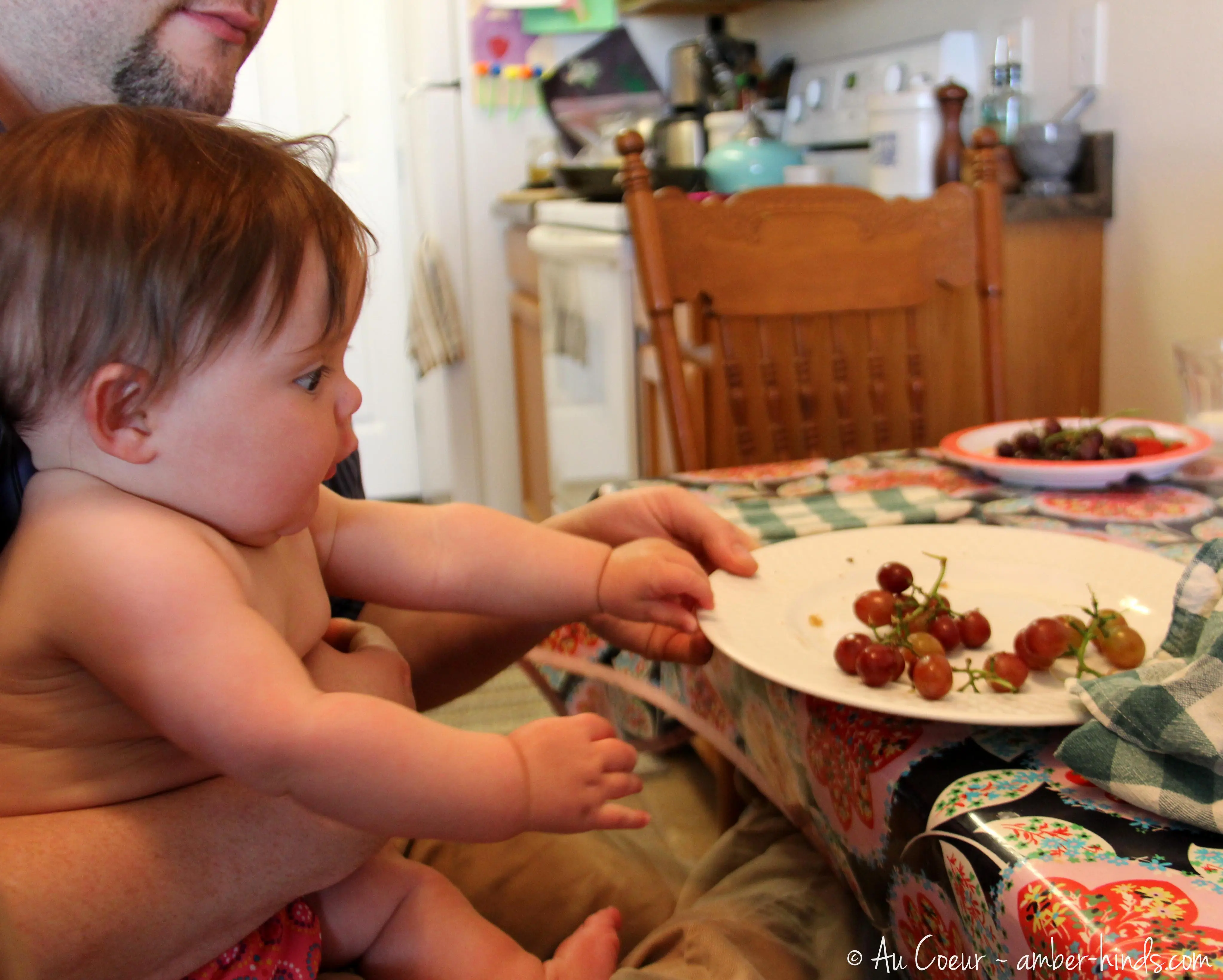
I’m not completely sure what the difference is with Zara, whether it is her comparably bigger size or the fact that I’m so accustomed to sharing my food with her older sister, but I don’t have the same aversion to starting solids. Actually, there are even times when it seems like it might just be easier (and more fun) to let her grab that grape off my plate.But still, mere days away from Zara’s first half birthday (only 16!), I remain committed to going the full 6 months of exclusive breastfeeding. The big reasons I am waiting to introduce Zara to solid food are the ones you always hear about:
- We are not seeing all of the signs of readiness just yet. She seems perfectly satisfied with milk alone and is not acting hungry after a feeding or increasing the frequency or duration of feedings. Though she is starting to sit just long enough me to snap a quick picture, she is not yet sitting unsupported for a decent amount of time.
- “Food before one is just for fun” — the AAP says that “[t]hough your baby will no doubt greatly enjoy the introduction of new tastes and textures in her life, her experiences with solid food are still just practice sessions for the future. It’s important to make sure she continues getting enough breast milk to meet her nutritional needs.” Every time Zara would eat food, just as if she were to drink a bottle, it would be a missed opportunity for her to nurse and to get the nutrients she really needs, as well as a missed opportunity to tell my body to keep making all that awesome milk.
- Which leads to reason three, that early introduction to solid foods is a risk factor for earlier cessation of breastfeeding. I’m not rushinging into solid foods because I don’t want to risk lowering my milk supply at a time when milk is still the best way for her body to get what it needs.
- Exclusive nursing is safer for her health — Exposure to pathogens present in foods can cause increased rates of diarrhoeal diseases and solid foods do not provide the immunologic benefits of the breast milk they replace. Exclusive breastfeeding for six months has been found to a significantly reduced risk of gastrointestinal and respiratory infection.
- Exclusive breastfeeding for at least 6 months reduces food allergies [PDF].
- Starting solids too soon may increase risk of obesity (not as likely in breastfed infants, but still something to consider) and increases the liklihood that the baby will have increased consumption of fatty or sugary foods at 1 year of age.
There are also a few secondary reasons I want to wait the full six months to introduce Zara to foods.
- We can only rely on the Lactational Amenorrhea Method as birth control for the first six months if she is receiving no complementary food or substitutes and is not doing any recreational sucking (such as with a pacifier).
- It’s just easier to not have to make, prepare, serve, or clean up food.
- Cloth diapers of breastfed only babies don’t have to be rinsed — once she starts eating food or drinking formula, I’ll also have to start spraying her diapers before I wash them.
- It makes introducing food feel more special if we can do it as a part of her half birthday “party.”
Between these two lists, there are ten good reasons to wait to start feeding her anything in addition to breastmilk, so we’re bound and determined to do just that, even if it means paying closer attention for the next couple weeks to the habit of sticking food in the nearest mouth.
In the meantime, we’re doing all we can to prep Zara for the big day by letting her try out her “new” high chair and get used to the feeling of various spoons and mesh feeders in her mouth.
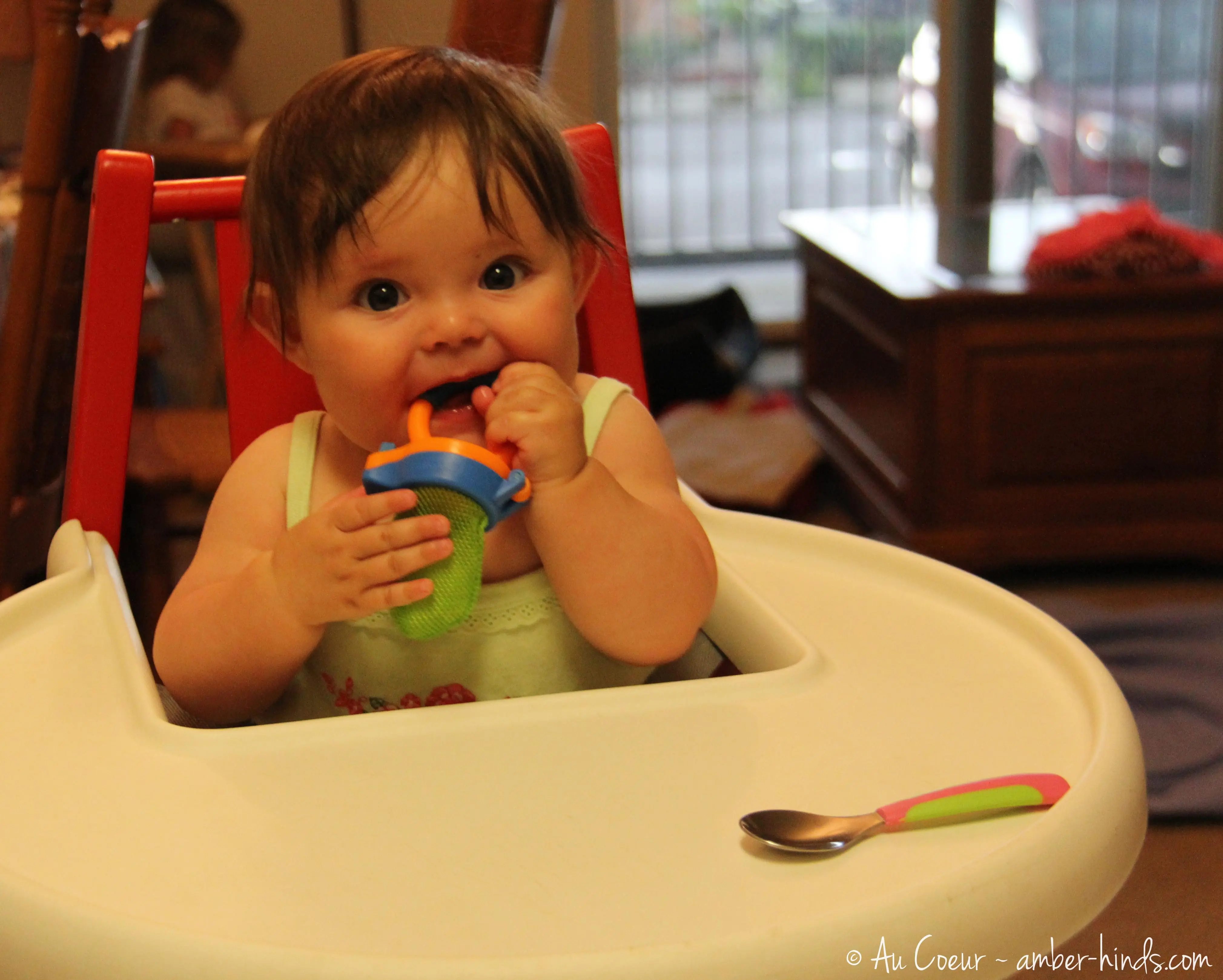
Not just from the serving end.
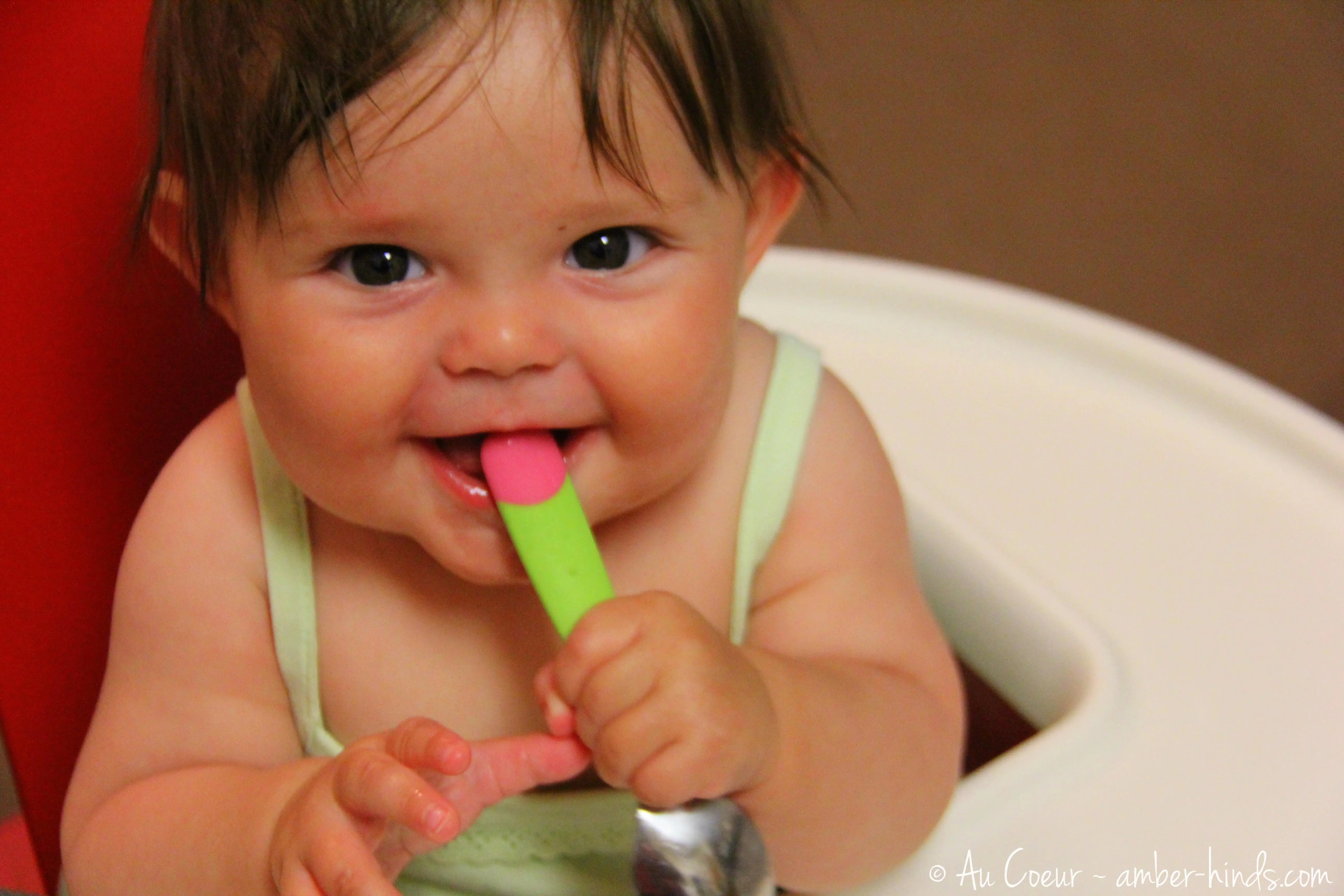
We still haven’t decided what her first food should be. The decision is a little harder since it doesn’t seem there will be any great local produce around yet in early July, so we’ll be stuck with buying something at the grocery store. I thought I might cook up a sweet potato for her, but of course all the official recommendations call for something rich in iron (pureed meat, eww). What do you think would be a good first food for Miss Bea? What did your babies eat first?
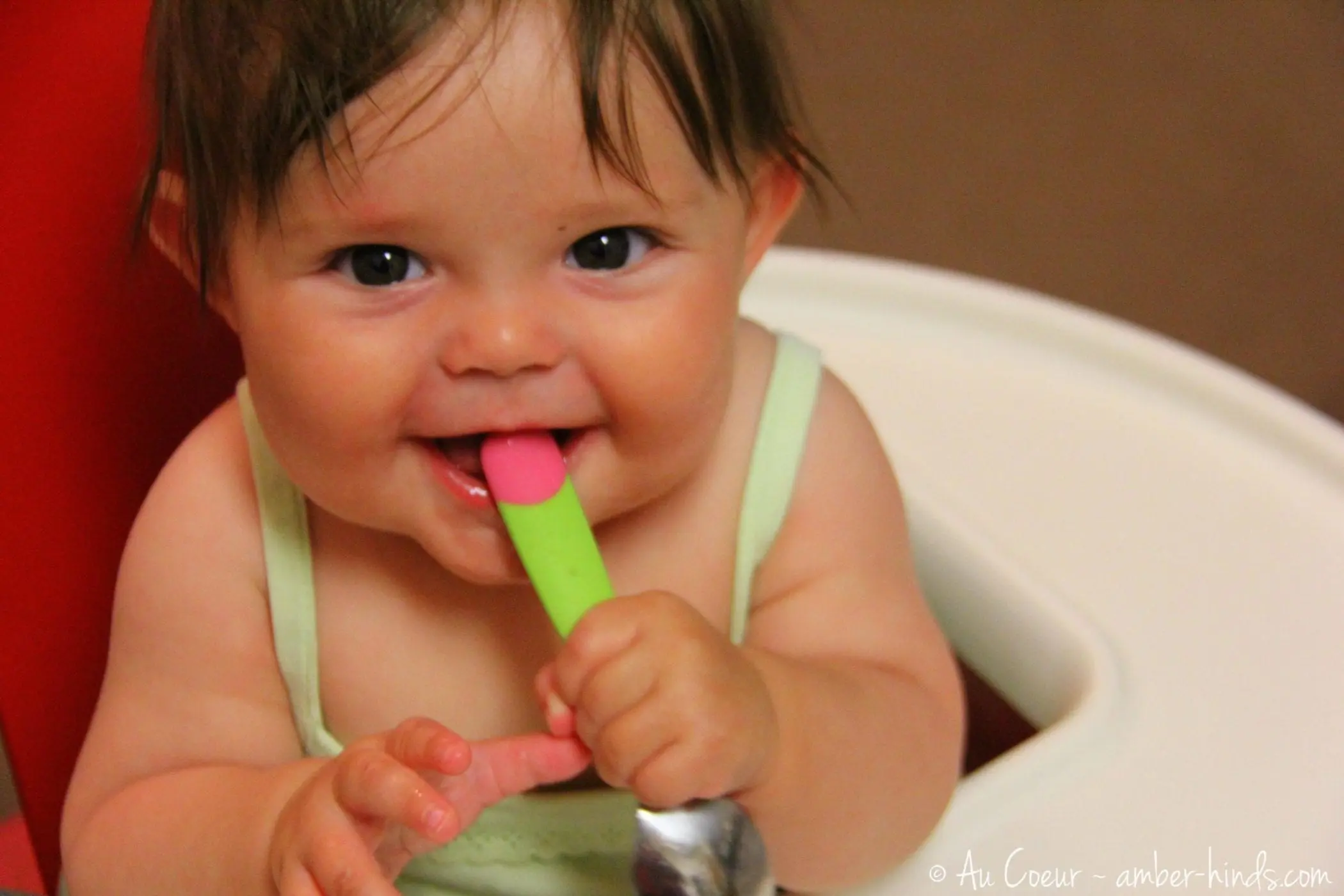
Leave a Reply